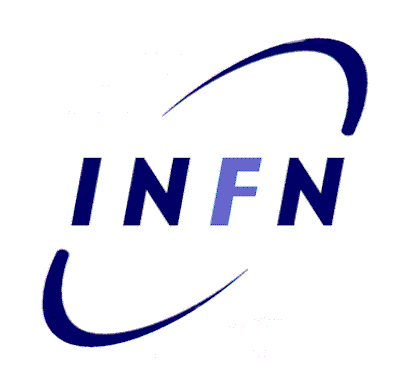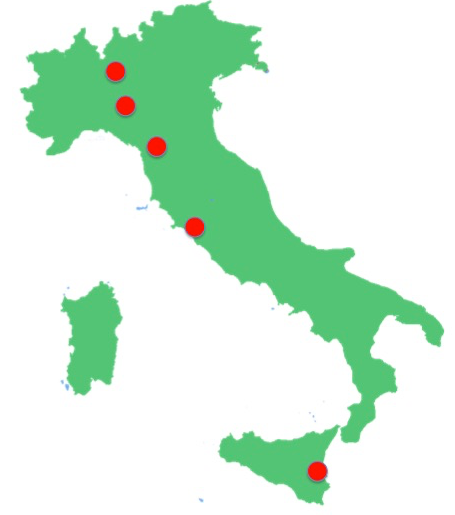Scientific activities of the various Research Units
Catania
The group in Catania focuses on the theoretical investigation of the emergence collective behavior, the role of noise and long-range interactions in classical and quantum systems of various kind. In particular the main research topics are the following:
- Noise, decoherence and entanglement in quantum systems
- Collective behavior, noise and random strategies in models of Self-Organized Criticality and coupled systems with applications to financial markets and opinion dynamics
- Non-equilibrium dynamics of systems with long-range correlations on complex networks
Firenze
The focus of the research of the Florence group is on collective dynamical and statistical properties of many-particle systems, in non "standard" situations. This includes classical and quantum nonlinear dynamics in extended systems, transport phenomena, energy landscapes, and the physics of long-range-interacting systems. Some recent research concerns:
- nonequilibrium phase transitions in coupled oscillators, cellular automata, and waves;
- dynamics on networks;
- thermodynamics of nonadditive systems;
- thermal properties of long-range interacting systems in quasi-stationary states;
- self-gravitating systems with regularized interactions;
- stochastic models with long-range interactions.
Milano
The main directions in the research carried out by Milano's unit involve anomalous dynamical features, in different settings, from classical deterministic evolution, to stochastic systems, to quantum mechanics. Such anomalous features are determined by mixed phase space, fat tails in statistical distributions and singular continuous measures, in the different contexts. Among recent results and ongoing studies we mention:
- small scale investigations of phase space via Poincaré recurrences;
- correlation decay and transport properties for infinite ergodic systems;
- random walks in environments with Lévy spaced scatterers;
- first passage problems for time-space correlated random walks;
- quantum systems whose spectral measure is Minkowski question mark function;
- analysis of deterministic systems via extreme value theory.
Pavia
Even if the basic constituents of a system interact following well understood laws, they
can cooperate to produce new phenomena which were not foreseen nor are easily understood.
These phenomena, called emergent phenomena and occurring at every
scale, arise from cooperative effects, therefore they
belong to the system as a whole and not to its components. Emergent properties can be studied in classical and
quantum systems as well. General questions to be addressed are:
(i) robustness to noise?
(ii) exploit such properties to build efficient quantum devices for energy transport and light harvesting?
(iii) existence of a common mechanism to robust collective
phenomena ?
In the search for a common mechanism to robust collective phenomena, an important role
might be played by long range interactions. Long-range interactions between the constituents
of a system do not arise only from microscopic interactions, but in many condensed matter
systems they can be induced by the coupling with environmental modes with a large wavelength
with respect to the system size.
In particular the following research lines are considered:
- Interplay of cooperativity and noise: from natural photosynthetic complexes to artificial quantum devices
- Out-of-equilibrium dynamics in long-range interacting classical and quantum many-body systems:
- Superradiance and transport in nanosystems
- Thermalization and quantum chaos in many-body isolated systems.
Roma I
On the one hand, dynamical systems ruled by long-range interactions (either model systems, like HMF or Kuramoto, or self-gravitating) are peculiar complex systems that develop statistical correlations and kinetics amenable to perturbative and non perturbative theoretical analysis coupled with numerical simulations. On the other hand, biological and social systems (genomes, agent based models, economies, schooling, herding and flocking in animals) display collective dynamical statistical correlations that are investigated through a variety of mathematical tools: from complex networks to inverse statistical mechanics. Merging methods from both sides is our endeavor; in perspective our work could contribute to the general definition, in complex systems, of equilibrium states and non-equilibrium states that either violate or do not violate detailed balance.
- General long-range systems
- Self-gravitrating systems
- Collective behaviour in biological systems


